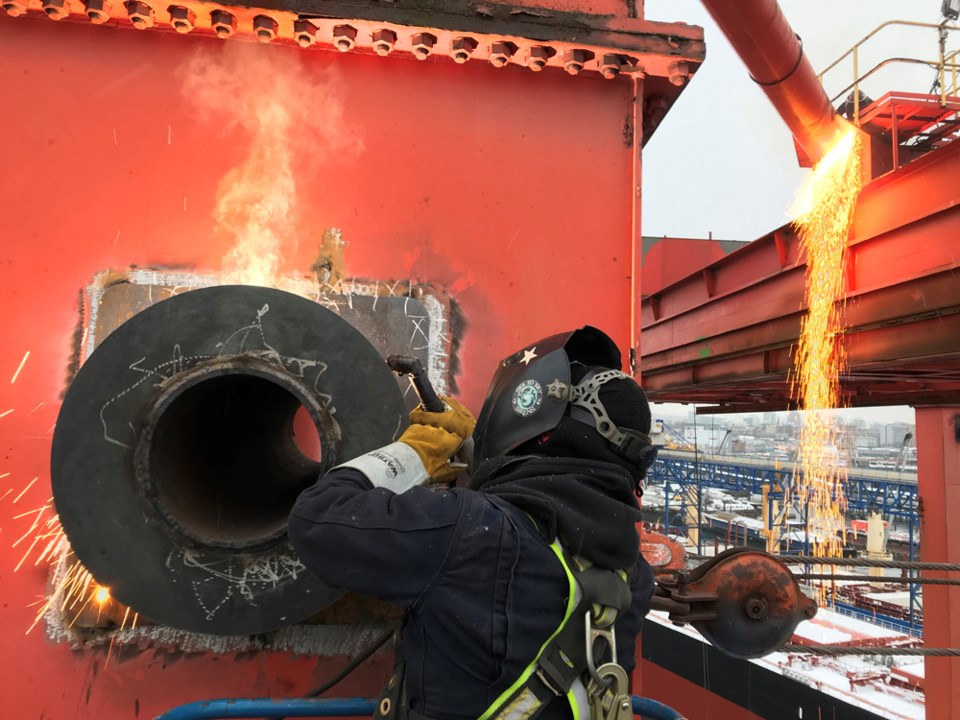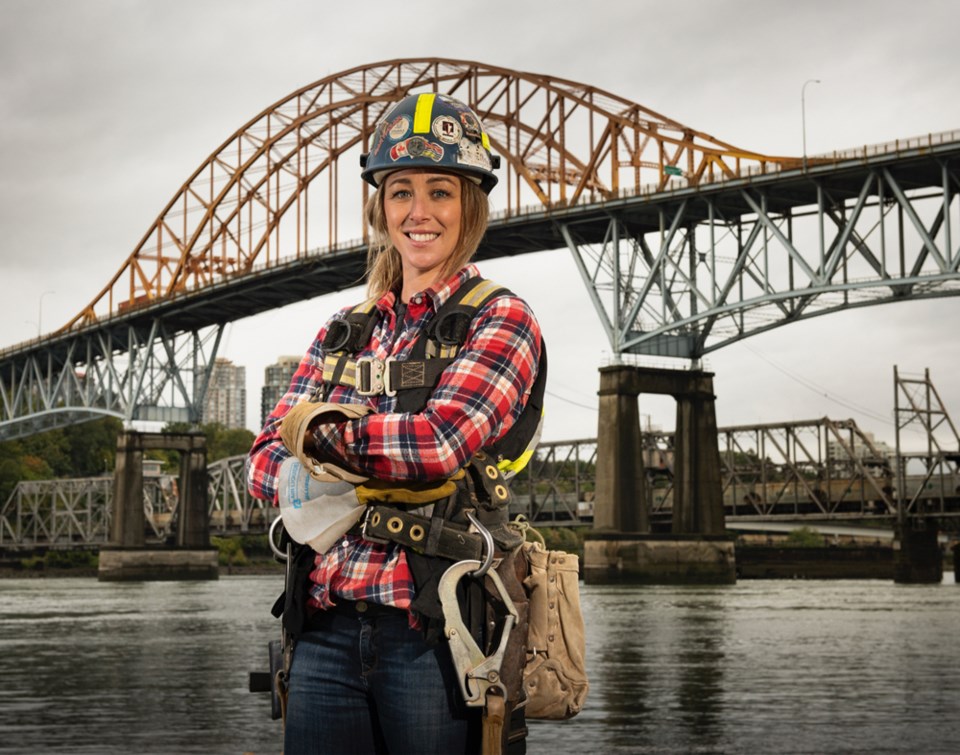Trades aren't just for the guys, Squamish's Danielle Shaw wants women to know.
Shaw, 36, is a ticketed welder and ironworker.
The Chief caught up with her while she was on her lunch break on the job at a Burnaby oil refinery.
What follows is an edited version of that conversation.
Q: How did you get into welding in the first place?
A: I just decided when I was about 30 that I was sick of working really, really hard and seeing all these guys making good money and I was working just as hard making half the amount. So, I decided to get a trade. My dad is a welder, so that pushed me in that direction. My dad just retired as a boilermaker (Local 359).
Q: What do you like about welding?
A: I like that I can tune everybody out and just pull my mask down and work. You can create, put things together, and take a step back and say, 'Wow, I made that.'
Q: You were pregnant when you were in trade school. How was that?
A: I actually managed to do my second level of schooling while I was five months pregnant. I’m pretty sure the steel trades department hasn't seen too many pregnant women toting a tool belt and fabricating a wide flange beam. It was kind of funny at first. I felt like there were a lot of eyes on me. I am lucky, though, I have had a lot of great guys who I went to school with and who I work with in this union. Honestly, they have always been very encouraging.
When I was pregnant, there were things we would alter. Instead of carrying something very heavy, they would give me the prints and I would tell them what was going on. It was very exhausting for sure. It was hard mentally — from pregnancy brain. It was a hard challenge, but it was doable.
Q: What does your job entail?
A: At this refinery, we are on a 13-days-on, one-day-off schedule for two months during the company's planned shutdown. Generally speaking, sometimes the job is just taking out pieces of a structure and adding new pieces. It is new builds. It is demolition. It is adding to things, reinforcing things. we do rigging, we install the columns, the beams. We install bracing. We connect it and then sometimes I go through afterward and start welding everything together.
The jobs go by contract. You work until the job ends.
I am fortunate that when the job ends, I sign into my Ironworkers Local 97 union hall and my union dispatches me out to another job.
Q: I understand that you used to be afraid of heights and small places and yet that is what your job involves at times, so how did you overcome those fears?
A: Most of my work is up in the air, out on the iron at heights and sometimes getting stuffed into small places, but it is something you just graduate into going higher and getting more comfortable. It gets easier over time. What seems really high to you at first, doesn't seem as high. You are more focused on what is in front of you rather than what is below you.
Q: What would you tell little girls or women who may be reading this who see you as a role model?
A: This is a career. Don't be intimidated by some of these career choices just because you are a woman. Chances are, you already have the work ethic and the strength to do these jobs. It is just you holding yourself back. If you go out and pursue these trades, you can have a well-paying career in a very short time. We need more women out there. They bring something different to the crews. It diversifies the crews.

Q: When you were little, do you remember seeing any women doing trades?
A: No. I have only ever worked with another female once, for a week in my five years of working as an ironworker.
The numbers aren't there yet, but they are coming.
Q: From what you have said, it does sound like the culture you work in has changed from previous generations when maybe women didn't feel welcome on job sites?
A: 100%. I am a big union supporter for that. I feel like they really have your back and really encourage women to be in the trades. They have accountability within the union and they want you to succeed.
Q: You have talked a lot about the positives of the job, but what are some of the challenges of the work, whether you are female or male?
A: For the West Coast, you are outside a lot. So, investing in some good rain gear can really help. It makes your day a lot better. And, sometimes it is physically challenging and draining. There are long shifts, long days.
Q: How long have you been in Squamish and what do you make of the changes in town?
A: I have been here 10 years. It was a quieter town, which is why I moved here, originally. There are things that I am excited for, that I see coming in.
It is not as affordable, as it used to be, though, which is why working in the trades has been allowing me to survive on the West Coast.



